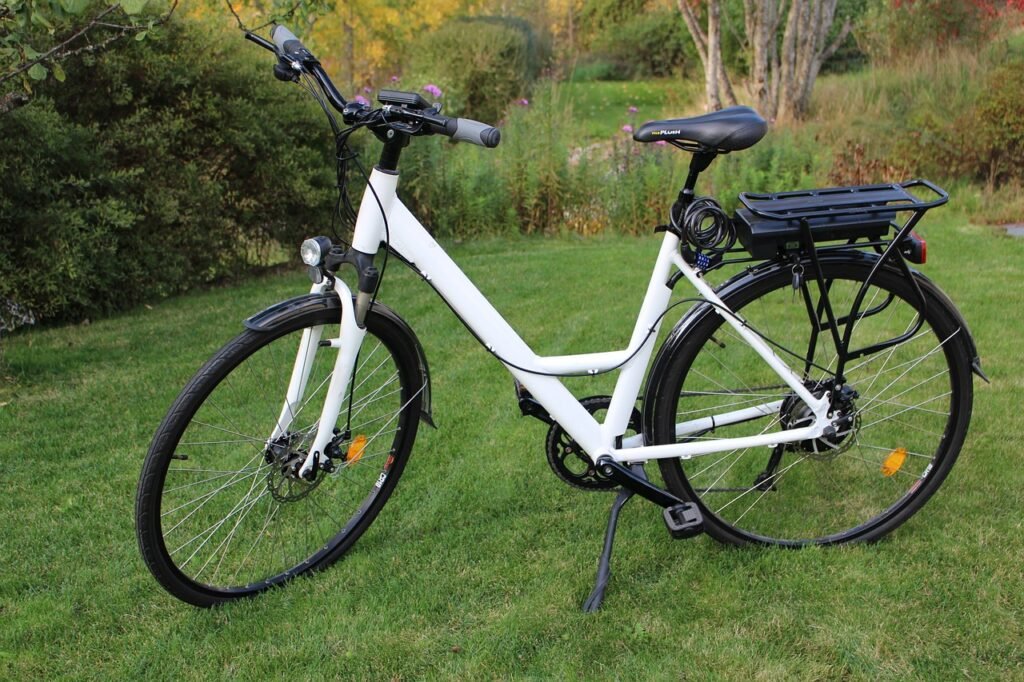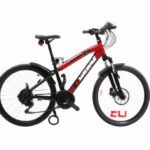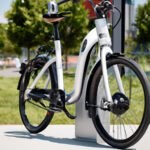
Electric bikes have become increasingly popular in recent years due to their eco-friendly nature and cost-effectiveness. They provide a convenient and efficient mode of transportation for both urban commuters and outdoor enthusiasts. However, a common concern among potential buyers is the distance they can travel on a single charge. The range of an electric bike depends on various factors, such as the battery capacity, terrain, rider’s weight, and speed. In this article, we will explore the different aspects that affect an electric bike’s range and provide you with valuable insights to help you understand how far you can travel on a single charge with an electric bike.

Factors Affecting Electric Bike Range
When it comes to electric bike range, there are several factors that come into play. Understanding these factors can help you make informed decisions when it comes to choosing an electric bike and planning your rides. From battery capacity to rider weight, each aspect contributes to the overall range you can expect from your electric bike. In this article, we will dive into each factor in detail and provide tips on how to maximize your electric bike range.
Battery Capacity
The battery capacity of an electric bike is one of the most crucial factors that affect its range. The battery capacity is usually measured in watt-hours (Wh) and determines how much energy the battery can store. A higher battery capacity generally means a longer range, as it allows the electric bike to draw power for a longer duration.
Types of Electric Bike Batteries
There are different types of electric bike batteries available in the market, including lithium-ion, lithium-polymer, and lead-acid batteries. Among these, lithium-ion batteries are the most popular due to their higher energy density and longer lifespan. These batteries are lightweight and provide a good balance between performance and weight.
Battery Voltage and Amp-Hour Rating
The voltage and amp-hour rating of an electric bike battery also play a significant role in determining its range. Higher battery voltage allows the electric bike to draw more power, resulting in increased performance and range. Similarly, a higher amp-hour rating indicates a larger battery capacity, which directly translates to a longer range.
Battery Management Systems
Battery management systems (BMS) are essential components of electric bike batteries. The BMS monitors and regulates the charging and discharging process, ensuring the battery operates within safe limits. A well-designed BMS can optimize the battery’s performance and extend its lifespan, ultimately affecting the electric bike’s range.
Battery Charging
efficient battery charging practices can also impact the electric bike’s overall range. It is recommended to use the manufacturer’s specified charger and follow the recommended charging procedures. Overcharging or undercharging the battery can affect its capacity and reduce the range. Regularly maintaining the battery’s charge level within the recommended range can help maximize its range.
Battery Lifespan
The lifespan of an electric bike battery is another crucial aspect to consider. Over time, the battery’s capacity may diminish, resulting in a reduced range. Factors such as the number of charge cycles, temperature, and charging habits can influence the battery’s lifespan. Proper care and maintenance, such as avoiding extreme temperatures and following the manufacturer’s guidelines, can help prolong the battery’s lifespan and maintain its range.
Level of Assistance
The level of assistance provided by an electric bike’s motor significantly impacts its range. Electric bikes offer different levels of assistance, allowing riders to choose how much power they want the motor to provide.
Pedal Assist Levels
Pedal assist is a popular feature in electric bikes where the motor provides assistance when the rider pedals. Most electric bikes come with multiple pedal assist levels, generally ranging from low to high power assistance. The higher the assistance level, the more energy the motor consumes, affecting the overall range. Choosing the appropriate pedal assist level based on your riding needs and terrain can help optimize the range.
Throttle Control
Some electric bikes also feature throttle control, which allows the rider to activate the motor without pedaling. While throttle control can provide a quick burst of acceleration, it consumes more power and can decrease the overall range. Utilizing the throttle sparingly and combining it with pedal assist can help balance the power consumption and maximize the range.
Combined Systems
Many electric bikes offer a combination of pedal assist and throttle control. This allows riders to switch between modes based on their preferences and riding conditions. Understanding how each mode affects the electric bike’s range and finding the right balance between the two can help optimize the overall range.
Terrain and Elevation
The terrain and elevation you ride on have a significant impact on the electric bike’s range. The level of effort required to traverse different terrains affects the energy consumption of the motor.
Flat Terrain
Riding on flat terrain typically requires less motor assistance, resulting in lower power consumption and an extended range. If you frequently ride on flat surfaces, you can expect to achieve the maximum range advertised by the manufacturer.
Hills and Inclines
Hills and inclines require more power from the electric bike’s motor, as the rider needs assistance to overcome the increased resistance. Climbing steep hills can significantly drain the battery and reduce the overall range. Riders tackling hilly terrain should be prepared for a reduced range compared to riding on flat surfaces.
Downhill and Regenerative Braking
While climbing hills can deplete the battery, descending hills or utilizing regenerative braking can help recover some energy and extend the range. Regenerative braking systems convert the kinetic energy generated while braking into electrical energy, which is then stored back in the battery. This feature can be beneficial for maximizing range when riding in hilly areas.

Rider Weight
The weight of the rider also affects the electric bike’s range. Heavier riders require more power to propel the bike, resulting in higher energy consumption.
Impact on Electric Bike Range
As rider weight increases, the motor needs to provide more assistance, consuming additional energy from the battery. This increased power consumption reduces the overall range. Riders who weigh more should consider this factor when estimating their electric bike’s range and plan their rides accordingly.
Wind Resistance
Wind resistance is another factor that affects the electric bike’s range. Riding against strong headwinds increases the resistance the rider and the electric bike face, ultimately reducing the range.
Effect on Electric Bike Range
When riding against strong headwinds, the motor needs to work harder to maintain the desired speed. This increased power consumption results in reduced range. Riders should be aware of wind conditions when planning their rides and consider the impact it may have on their electric bike’s range.

Tire Pressure
Maintaining proper tire pressure is essential for optimal performance and range of an electric bike.
Optimum Tire Pressure
Underinflated or overinflated tires can increase rolling resistance, making it harder for the electric bike to move forward. This increased resistance requires more power from the motor, resulting in decreased range. Regularly checking and maintaining the recommended tire pressure can help reduce rolling resistance and maximize the electric bike’s range.
Effect on Electric Bike Range
Low tire pressure can cause the electric bike to feel sluggish, while overinflated tires may result in a bumpy ride. Both situations can decrease the efficiency of the motor and reduce the overall range. By keeping the tires properly inflated, riders can ensure optimal bike performance and maximize their range.
Temperature
The temperature, whether it’s hot or cold, can have an impact on the electric bike’s range. Extreme temperatures affect the performance and efficiency of the battery and motor.
Hot Weather
In hot weather, the battery and motor may heat up more quickly due to increased ambient temperatures. This heat can reduce the overall efficiency of the battery, resulting in a decreased range. Riders should be mindful of the temperature and give the electric bike’s battery and motor appropriate cooling periods to maintain optimal performance.
Cold Weather
Cold weather also affects the performance of the electric bike’s battery. In cold temperatures, the battery may experience a decrease in voltage and capacity, resulting in reduced range. Pre-warming the battery before riding and storing it in a warmer environment can help mitigate the effects of cold weather on the electric bike’s range.
Battery Performance
Extreme temperatures can impact the battery’s performance and, in turn, affect the overall range of the electric bike. By being aware of the temperature conditions and taking appropriate measures, riders can optimize their electric bike’s range.

Tips to Maximize Electric Bike Range
Now that we have explored the factors that affect the electric bike’s range, let’s discuss some practical tips to maximize the range:
Choose an Electric Bike with Higher Battery Capacity
Opting for an electric bike with a higher battery capacity will inherently provide a longer range. Consider your riding needs and choose a battery capacity that aligns with your desired range expectations.
Optimize Pedal Assist Levels
Experiment with different pedal assist levels to find the balance between assistance and power consumption. Lower assist levels will conserve battery power, while higher levels provide more assistance but drain the battery faster. Adjusting the pedal assist level based on the terrain and your energy needs can help optimize the range.
Maintain Optimum Tire Pressure
Regularly check and maintain the recommended tire pressure. Properly inflated tires reduce rolling resistance, allowing the electric bike to move more efficiently and maximize the range.
Reduce Wind Resistance
If possible, plan your rides to minimize or avoid riding against strong headwinds. By reducing wind resistance, you can decrease the power consumption required to maintain your desired speed, ultimately improving your electric bike’s range.
Avoid Excessive Weight on the Bike
Carrying unnecessary weight on your electric bike, such as heavy bags or accessories, can reduce the range. Keep your load as light as possible to optimize the electrical system’s efficiency and increase your electric bike’s range.
Consider Terrain and Route Planning
When planning your rides, consider the terrain and elevation changes. Avoiding steep hills and choosing flatter routes can help conserve battery power and increase your electric bike’s range. Plan your routes effectively to strike a balance between distance and power consumption.
Real-World Electric Bike Range Examples
To provide a better understanding of electric bike range in real-world scenarios, let’s take a look at some specific examples:
City Commuting
For city commuting, where the terrain is generally flat and riders typically encounter minimal wind resistance, electric bikes can achieve their maximum advertised range. Riders can comfortably commute to and from work without worrying about range anxiety.
Leisure Rides
During leisure rides or weekend outings, riders might explore different terrains and encounter moderate inclines. The range of electric bikes during these rides may not reach the maximum advertised range but should still provide enough power to cover a significant distance before recharging is needed.
Off-Road Adventures
Off-road adventures often involve riding on challenging terrain, including steep inclines and uneven surfaces. In these situations, the electric bike’s range may be significantly reduced due to the increased power required to traverse such terrain. Riders should plan their off-road adventures accordingly and be prepared for a shorter range compared to smoother terrains.
Long-Distance Travel
For riders embarking on long-distance travel, careful planning and consideration of factors affecting range are crucial. By choosing a route with flatter terrain, minimizing wind resistance, and optimizing power consumption, riders can achieve longer ranges. However, it is important to plan for regular recharging or carry additional battery packs to ensure sufficient power throughout the journey.
In conclusion, the range of an electric bike is influenced by various factors, including battery capacity, level of assistance, terrain and elevation, rider weight, wind resistance, tire pressure, and temperature. By understanding these factors and implementing the provided tips, riders can maximize their electric bike’s range and enjoy long, efficient rides. Whether you’re commuting to work, going on leisurely rides, or embarking on off-road adventures, optimizing your electric bike’s range will enhance your riding experience.





















